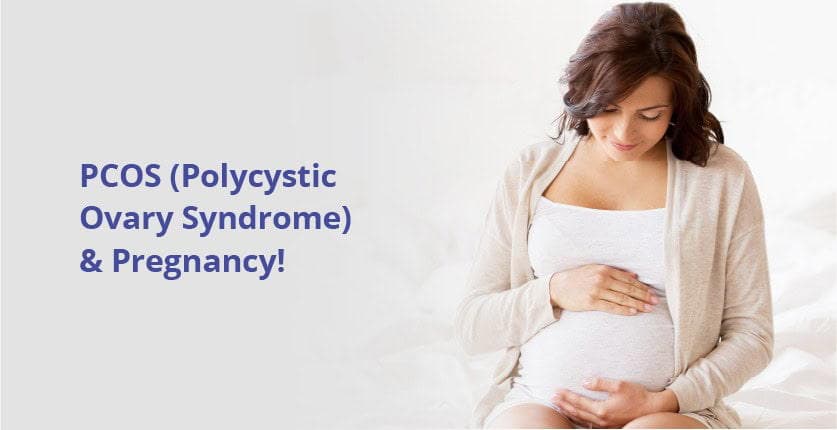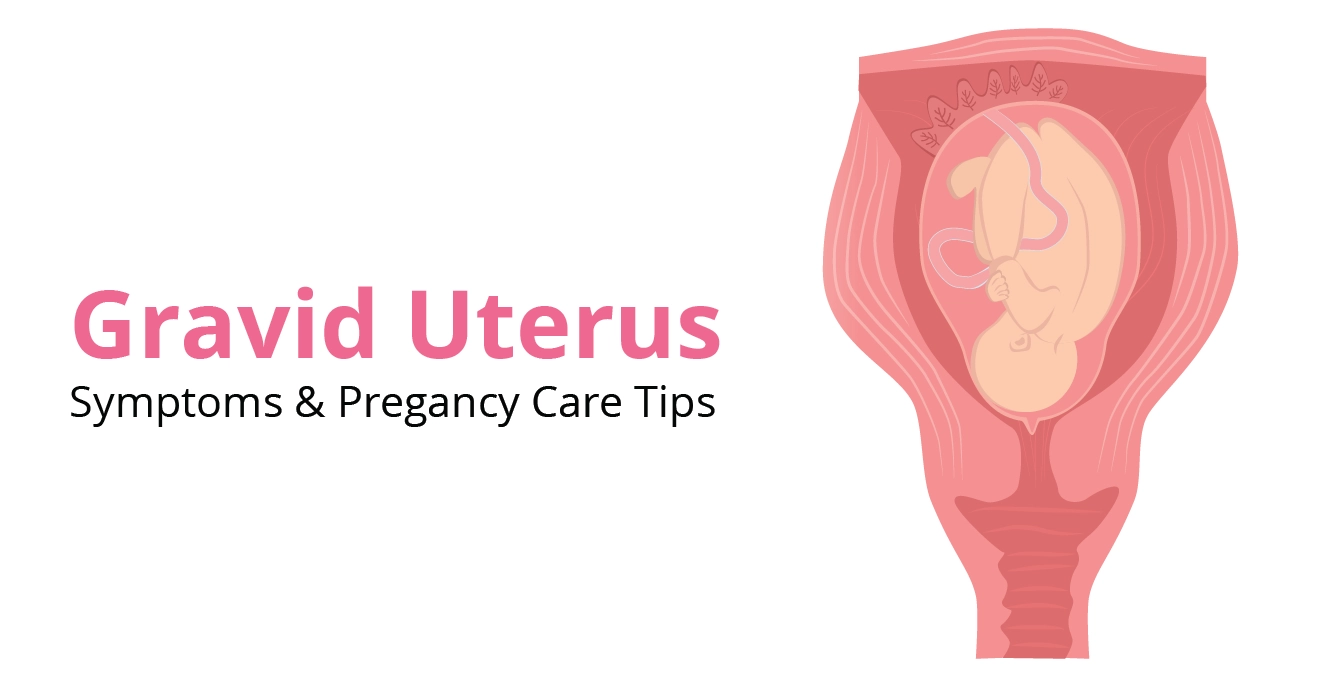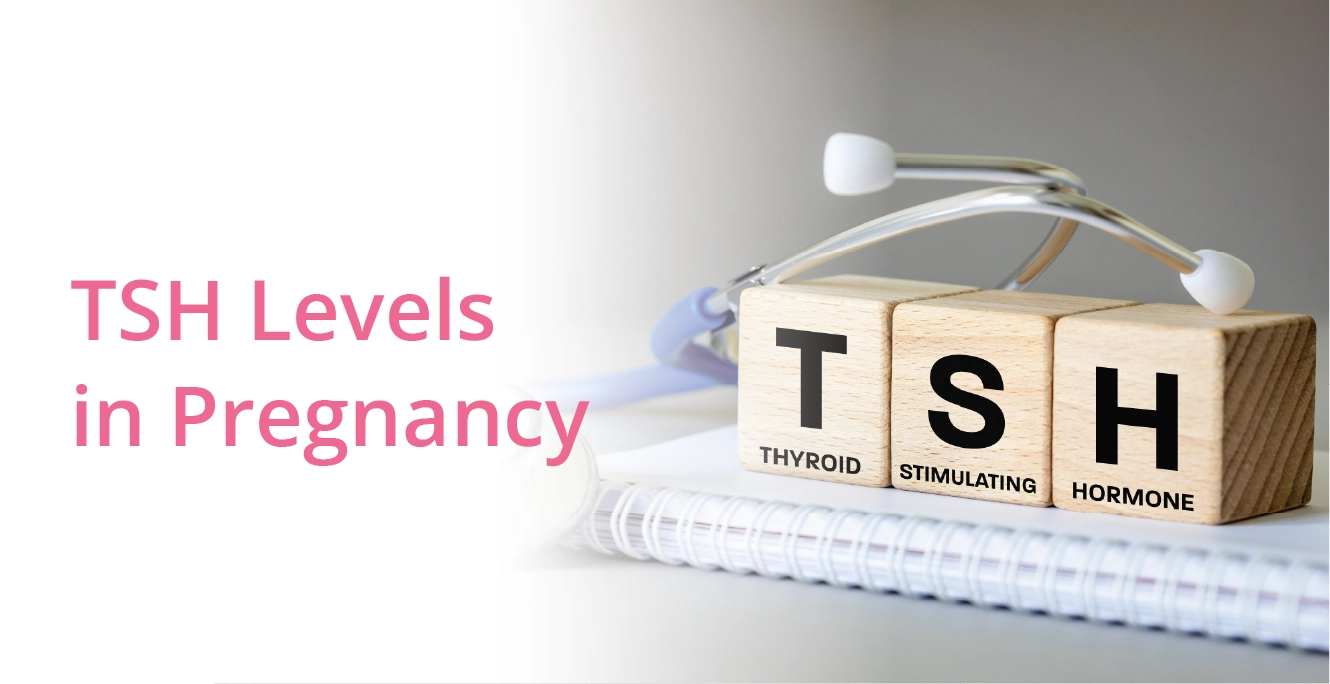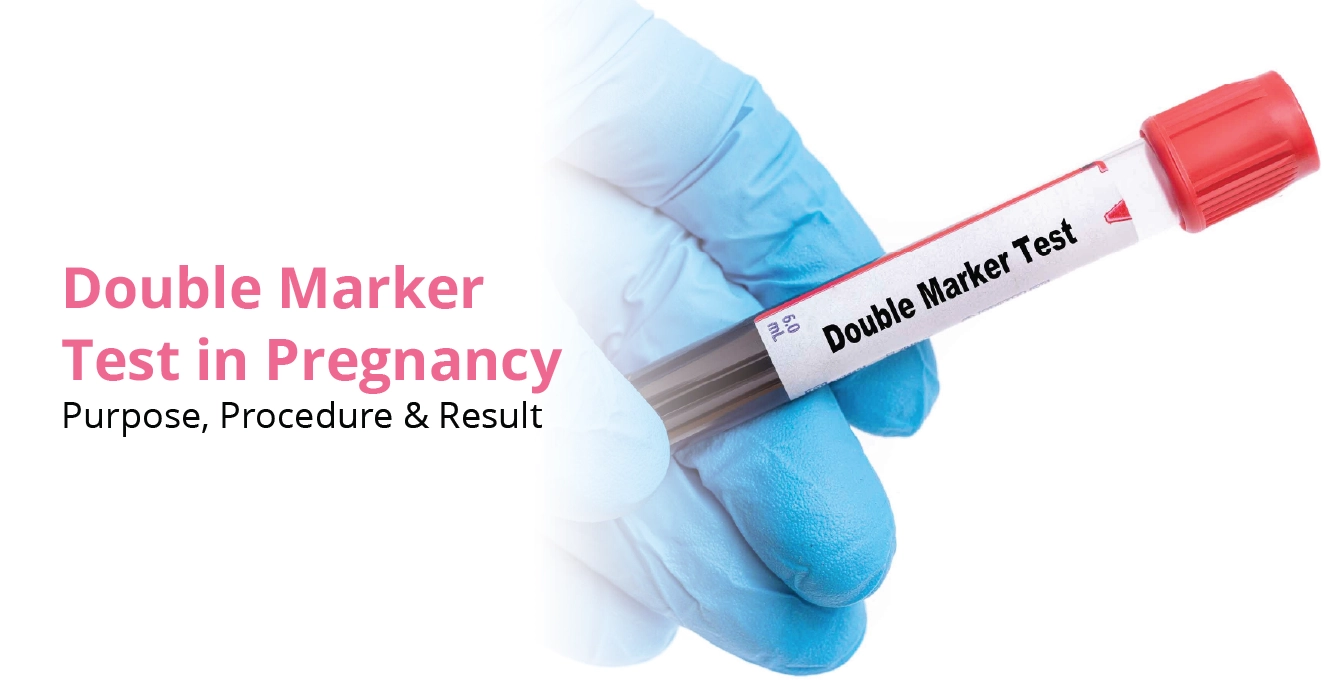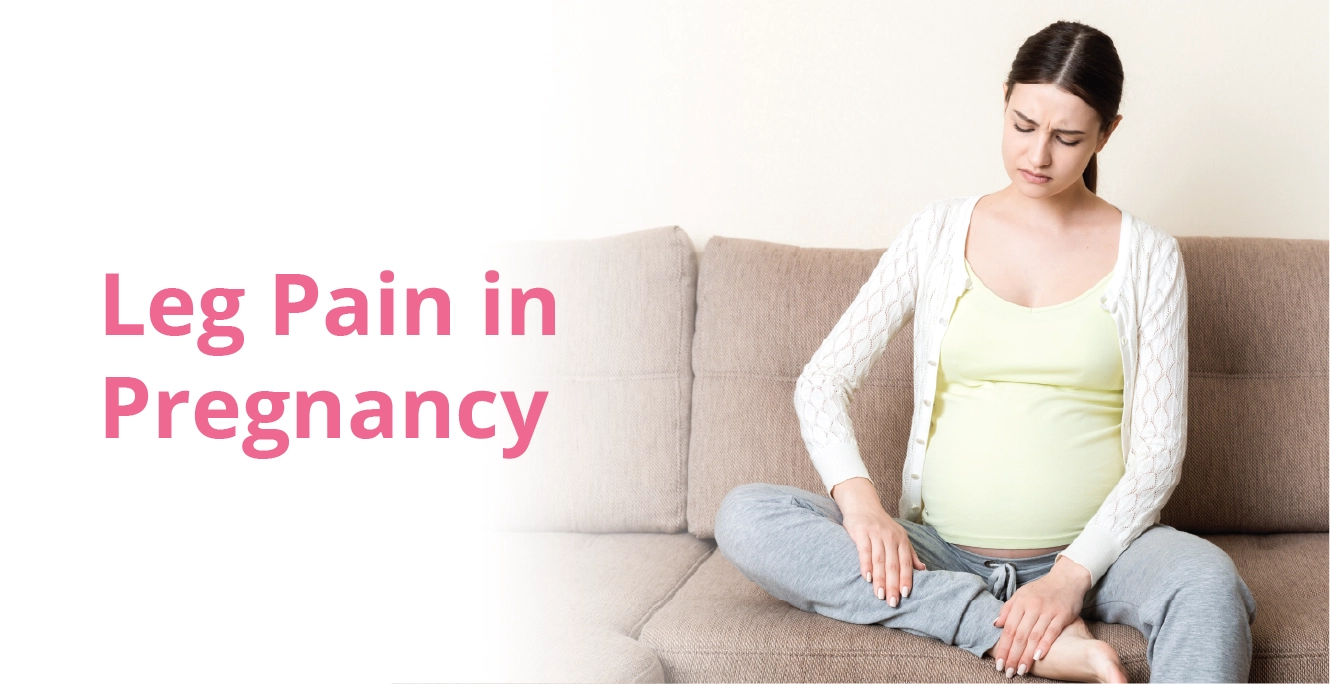Table of Contents
Polycystic ovary syndrome (PCOS) is a common hormonal disorder affecting millions of women worldwide. If you are experiencing fertility challenges, you may be wondering, “Can I get pregnant if I have PCOS?” The good news is that with the right care and medical support, many women with PCOS successfully achieve pregnancy. This blog looks at the correlation between PCOS and fertility, provides you with some important tips, and informs you when to get professional assistance.
How to Get Pregnant with PCOS?
1. Lifestyle Modifications
- Healthy Eating: A diet rich in whole grains, lean proteins, healthy fats and fibre can help regulate hormones. Low glycemic index (GI) foods are particularly beneficial for managing insulin resistance.
- Exercise: Regular physical activity improves insulin sensitivity and promotes weight loss, which can help restore ovulation.
- Stress Management: Techniques like yoga and meditation can help manage stress, which may positively impact your fertility.
2. Weight Management
A healthy weight can help manage PCOS in multiple ways.
- Restores ovulatory cycles
- Improves egg quality
- Improves the effectiveness of fertility treatments
3. Monitor Ovulation
Accurately identifying your fertile window is essential to improve pregnancy chances.
- Use ovulation predictor kits (OPKs) to monitor LH surges since high LH levels can disrupt ovulation.
- Track basal body temperature (BBT) or use fertility-tracking apps.
4. Regulating Menstrual Cycles
Medications can help regulate your cycles and improve ovulation but do not take it without consulting your doctor. Below are some medications that are generally used.
- Clomiphene Citrate: Often the first-line treatment for inducing ovulation.
- Metformin: Improves insulin resistance and restores hormonal balance.
- Letrozole: An effective alternative to Clomiphene for women with PCOS.
5. Medical Interventions
For women who don’t respond to lifestyle changes and medications, advanced fertility treatments are available. These are: Intrauterine Insemination (IUI): Sperm is placed directly into the uterus to increase the chances of fertilisation. This is an affordable option for many couples but has some restrictions. Consult your fertility expert for a better understanding. In Vitro Fertilisation (IVF): This is an advanced approach. Eggs are fertilised outside the body and implanted into the uterus. IVF is highly effective for women with PCOS who face persistent infertility.
The Link Between PCOS and Fertility
PCOS causes some issues with conceiving, but this does not mean that it is impossible to get pregnant. Learning how PCOS is related to infertility can help manage the problem, and with the assistance of a fertility expert, women with this condition can also get pregnant. Here’s a summary of how PCOS impacts fertility.
Anovulation
- What is it: Anovulation means that the woman is not able to ovulate regularly or at all due to hormonal imbalances. This is common with PCOS.
- How it Impacts: Anovulation is a primary cause of infertility because the lack of eggs inhibits pregnancy.
Insulin Resistance
- What is it: Many women with PCOS can develop insulin resistance. This makes the body’s cells irresponsive or less responsive to insulin.
- How it Impacts: Insulin resistance can aggravate hormonal imbalances. This further affects egg quality and the overall reproductive health of the person.
Endometrial Issues
- What is it: Irregular menstrual cycles can cause the uterine lining (endometrium) to thicken excessively or not prepare adequately for implantation.
- How it Impacts: This can minimise the chances of implantation of a fertilised egg even if ovulation and fertilisation have occurred.
Knowing these issues, the woman with PCOS can opt for certain measures such as diet modification, change in lifestyle, and certain medications that would improve their chances of conceiving.
Does PCOS Impact Fertility?
| Aspect | Impact | Explanation |
| Ovulation Issues | Disruption in ovulation |
|
| Hormonal Imbalances | Increased androgens (male hormones) |
|
| Irregular Cycles | Difficulty predicting fertile days |
|
How Does PCOS Affect Pregnancy?
Following are some of the additional challenges women with PCOS may face during pregnancy.
| Challenge | What is it? | Potential Impact on Pregnancy | How to Manage? |
| Increased Risk of Miscarriage | Hormonal imbalances, particularly elevated androgens and insulin resistance can affect embryo quality and uterine receptivity. | Heightened risk of early miscarriage. | Regular prenatal check-ups, hormonal support, and maintaining healthy blood sugar levels. |
| Gestational Diabetes | Women with PCOS are at a higher risk of having abnormal glucose levels during pregnancy due to insulin resistance. | Higher likelihood of complications such as large birth weight and premature delivery. | Monitoring blood sugar, following a gestational diabetes-friendly diet and medication if needed. |
| Pre-eclampsia | Women with PCOS are at an elevated risk of high blood pressure due to metabolic disturbances. | Increased chance of complications for both mother and baby, including preterm birth | Blood pressure monitoring, stress management and medical intervention when required. |
Suggestion: PCOS is a condition that can pose certain challenges to pregnancy but with proper management and the right care, women with PCOS can have better chances to conceive. All you need to have is open communication with your healthcare provider and take the right steps that can turn the outcomes in your favour.
Importance of Early PCOS Diagnosis and Diagnostic Methods
Getting the diagnosis of PCOS at the right time aids in improving the chances of conception and maintaining the health of the reproductive system through the right treatment. The following are some of the standard diagnostic methods used to detect PCOS.
| Test | What it Involves | Why it Matters |
| Hormonal Testing | Blood tests are conducted to evaluate hormone levels. These include:
|
|
| Ultrasound | A pelvic ultrasound is performed to assess the ovaries and uterus. This is done to check:
|
|
| Symptom Analysis | A detailed examination of symptoms reported by the patient. These may include:
|
|
Takeaway:
- Accurate diagnosis enables healthcare providers to create a customised treatment plan targeting your specific symptoms and fertility challenges.
- By addressing hormonal imbalances and lifestyle factors early, you can enhance your chances of pregnancy.
- Diagnosing PCOS early helps mitigate long-term complications, such as diabetes, cardiovascular issues and endometrial cancer.
Myths About Pregnancy and PCOS
Let’s debunk some common misconceptions:
| Myth | Fact | Explanation |
| Women with PCOS can never get pregnant. | Many women with PCOS conceive naturally or with medical help. | While PCOS can make conception more challenging, treatments like lifestyle changes, ovulation tracking, and ART are effective. |
| PCOS pregnancies are always high-risk. | With proper care, most women have healthy pregnancies. | Although there is a slightly increased risk of complications, early diagnosis and monitoring can significantly mitigate these. |
| Weight loss isn’t necessary for treatment. | Weight management often plays a significant role in restoring fertility. | Losing even 5-10% of body weight can improve insulin sensitivity, regulate cycles, and enhance the chances of ovulation. |
Knowing the facts about PCOS and how it impacts pregnancy prepares a woman to proceed practically. And debunking the myths helps them to make the right choices concerning their fertility process.
When to Seek a Doctor’s Advice?
You should talk to your doctor in the following scenarios:
Difficulty Conceiving for Over Six Months
- If you have been attempting to conceive for six months or more, without success, it is high time that you sought the advice of a fertility expert.
- PCOS can make it difficult to ovulate thus impacting fertility.
- A fertility expert will examine your condition and recommend treatments that may include certain medications or assisted reproductive technologies such as IUI or IVF.
Irregular or Absent Periods
- Irregular or absent periods may be signs of ovulation problems which is common in women with PCOS.
- Missing periods for more than 35 days may indicate that your ovaries are not releasing eggs as they should. This is an indication of PCOS and may be causing issues with fertility.
- Your doctor can help regulate your menstrual cycle through certain medications or other interventions.
Severe PCOS Symptoms
- If the person experiences conditions such as severe acne, hirsutism (excessive hair growth especially on the face), thinning of scalp hair or unexplained weight gain, then they must consult a doctor.x
- These symptoms are often associated with increased androgen levels (male hormones) and insulin resistance that can impact your health and chances of conception.
Age Over 35
- The chances of getting pregnant naturally decrease with age, hence, women over the age of 35 may have a reduced fertility window.
- A fertility specialist will examine your hormones, and ovarian reserve and suggest the right treatment that will improve your chances of pregnancy.
Conclusion
Getting pregnant with PCOS may require extra effort and care, but it is not impossible. Focus on lifestyle changes, track ovulation, and explore medical options when necessary. With the right support and strategies, your journey to parenthood can become a reality. If you’re facing challenges, don’t hesitate to seek professional guidance from our fertility experts at Birla Fertility & IVF.
Word From An Expert:
Every woman’s path to pregnancy is unique, and with patience and care, success is within reach. Seeking medical advice early can help you manage PCOS symptoms effectively and improve your chances of getting pregnant. ~ Dr. Muskaan Chhabra
Our Fertility Specialists
Related Blogs
To know more
Birla Fertility & IVF aims at transforming the future of fertility globally, through outstanding clinical outcomes, research, innovation and compassionate care.
Had an IVF Failure?
Talk to our fertility experts

 Our Centers
Our Centers


